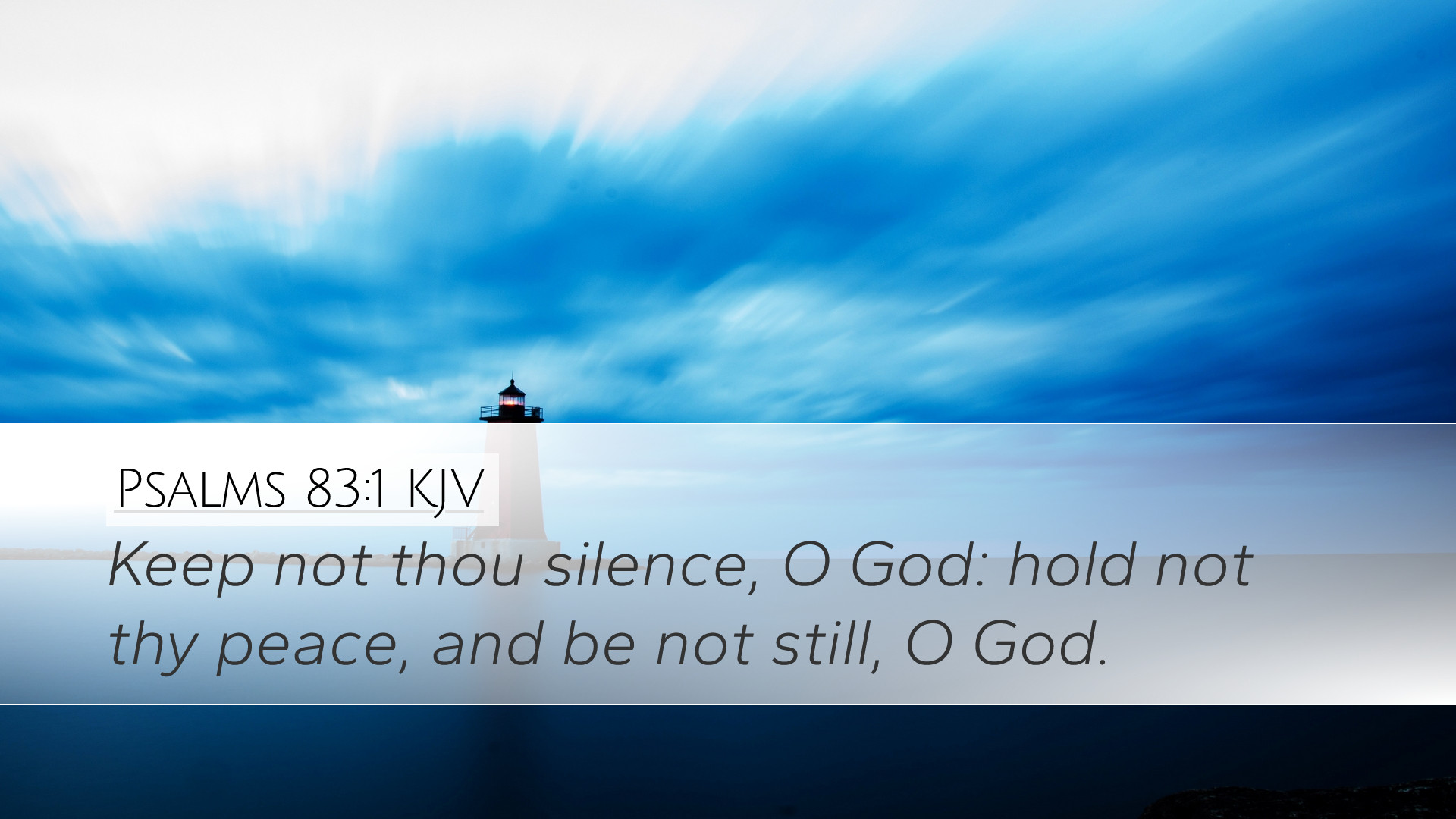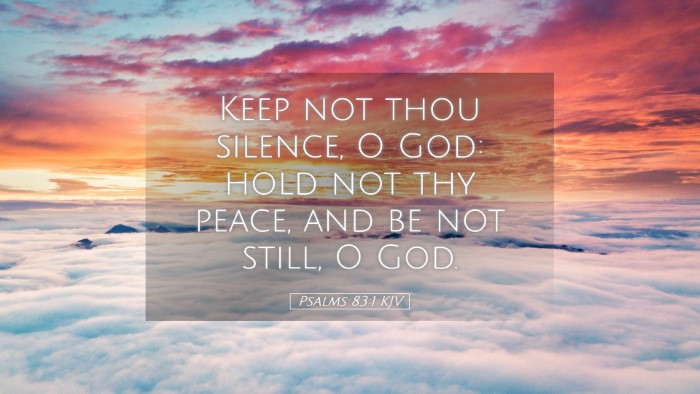Psalms 83:1 Commentary
Verse: "Keep not thou silence, O God: hold not thy peace, and be not still, O God."
This verse serves as a poignant and urgent plea for divine intervention. It encapsulates the deep sense of distress and concern expressed by the psalmist, and opens the door to understanding the broader themes present in this chapter.
Contextual Overview
Psalms 83 is a communal lament, indicating that the psalmist is not alone in their cries but represents a collective voice of Israel. The Jewish people are often depicted as being besieged by their enemies, and this psalm highlights their pressing need for God to listen and act on their behalf.
Theological Significance
In reflecting on this verse, it's essential to consider its theological implications:
- Divine Silence: The cry for God to not remain silent underscores a feeling of abandonment or estrangement, which is a recurring theme in the Psalms.
- The Nature of Prayer: This verse illustrates the raw honesty of prayer—the psalmist does not shy away from expressing urgency and desperation.
- The Sovereignty of God: The psalmist appeals to God's attributes, recognizing that true power lies with Him and that His intervention is vital for deliverance.
Insights from Commentators
Matthew Henry
Matthew Henry emphasizes the "agony of the soul" reflected in the supplication of this verse. He notes that the psalmist's fervent request suggests a battle not just with external forces but with spiritual desolation as well.
Henry likens this plea to a cry of a distressed individual, encapsulating both fear and hope for God’s presence. He points out that acknowledging the potential silence of God can serve to heighten the earnestness of prayer. It serves as a reminder that God's attentiveness is vital to human endurance.
Albert Barnes
Albert Barnes places significance on the communal aspect of the psalm's authorship, arguing that it reflects Israel's vulnerability against hostile nations. Barnes highlights that the repetition of "O God" amplifies the urgency and earnestness of the call for God's attention.
Furthermore, Barnes interprets this verse within the larger context of God's character—His righteousness and justice should compel Him to respond. The absence of silence can be seen as God's active involvement in the affairs of His people, a theme present in many of the psalms.
Adam Clarke
Adam Clarke provides insight into the emotional and psychological state of the author. He remarks that such dire pleas reflect a moment of crisis where the faithful feel most vulnerable. Clarke asserts that the psalmist’s desire for God to "hold not thy peace" resonates with anyone who feels forsaken in their struggles.
He also observes that the choice of words conveys a profound sense of urgency—a call for immediate divine action against oppressors. The divine silence is seen, not as absence, but as a critical moment requiring earnest supplication from the faithful.
Application for Today’s Believers
In light of this rich commentary, modern believers may draw several applicable lessons from Psalms 83:1:
- Vocalizing Lament: Just as the psalmist expresses desperation, believers today are encouraged to vocalize their struggles and seek God actively.
- Community in Prayer: The collective nature of the psalm should inspire congregations to come together in prayer during times of distress, fostering unity amid suffering.
- Trust in God’s Response: The confidence that God hears and responds, even if at times He seems silent, can strengthen faith.
Conclusion
Psalms 83:1 encapsulates a profound cry for help that resonates across generations. It reminds us of the human condition—our need for divine presence and aid amidst turmoil. Through the insights of revered commentators like Matthew Henry, Albert Barnes, and Adam Clarke, believers today can find both solace and encouragement in their struggles, reaffirming their faith in our ever-present God.


